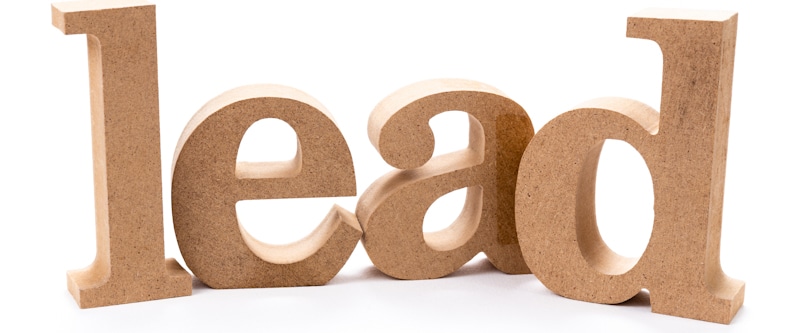A particular word having two or more meanings is not necessarily a rare occurrence. But the word changing in pronunciation with a shift in its definition is uncommon after all. The word “lead” is one such puzzling term, and there’s “led” thrown in for good measure too.
“Lead” means “to be at the front”, “to be in charge”, “to facilitate”, etc. Lead also denotes the metal “lead”, besides the core of a pencil. In journalism, “lead” is the intro paragraph in a writeup. Use “lead” in your texts based on the context. “Led” is the past participle of the verb “lead”.
If the above sounds confusing, the remainder of the article may baffle you even more. But, do not fret, as the meanings of both terms and their variations, using them in texts, etc., are clearly explained. Read on to delineate “lead” and “led”.
“Lead” – Definition
As mentioned above, “lead” could take up a host of meanings based on how it’s incorporated into a sentence or the context in which it’s used.

Getting to Know “Lead”, the Noun
The noun “lead” denotes “a metallic element”. “Lead” is “a heavy, soft metal that’s grayish or silvery-white in color”. The metal “lead” can be easily shaped, has a low melting point (relatively), and does not rust too much. It comes in handy in various applications.
A pencil’s core is also called “lead”. However, it’s not the metal “lead” or a blend of the metallic element. It’s instead made of graphite, a naturally occurring mineral.
Outside of science or physics (to be specific), the noun “lead” denotes “top position”. That position could have been assumed in sports, business, or any other field. In journalism, “lead” denotes “a new story’s introductory section”. The intro of this article is its “lead”, for instance.
“Lead”, as a Verb
The verb “lead” means “showing the right way”. It could also denote “serving as a conduit or channel for a particular thing – for example, water”. As a verb, “lead” could mean a few other things too, including “taking charge of”, “directing things”, “going through”, “to begin”, etc.
The adjective usually denotes “the small glass panes held together by thin grooved lead strips”. In petrochemical lingo, “leaded” means “containing tetraethyl lead” to help with combustion.
Though “led” is the past participle of “lead”, “leaded” does exist as a term.
“Led” – Definition
The word “led” is the past participle and past tense of “lead”, the verb. “Led” means everything that the verb “lead” stands for but in the past tense. And yes, “lead” is not the past tense of “lead”.
Also, “led” and “L.E.D.” do not mean the same thing. “Led” is a full-fledged word, whereas “L.E.D” is an acronym that expands as “light-emitting diode”. The right way to pronounce the latter is by spelling out the individual letters and not together, which some do.
But since “L.E.D.” is written in all caps, it should not cause much confusion.
Using the Word “Lead” in Texts
Based on the meaning, “lead” could function as an “adjective”, “noun”, or “verb”. The word doesn’t alter in shape or spelling when used as a noun or as an adjective. When employed as a verb, however, it could become “led”. (More on the usage of “led” later in the article)
Here are a few sentences using “lead” as a verb:
- He leads the team with poise and confidence.
- This gate leads to the garden.
The verb form of the word could be used to mean different things, as mentioned above. For example:
- She is leading a quiet life. (going through or living life without much fuss)
- He will lead the orchestra. (direct the operations of or instruct)
- She will lead the campaign. (take or have charge of)
- He will lead off the Christmas party. (begin or kick-off)
The following sentences employ the noun “lead”:
- The Ethiopian athlete was in the lead.
- Her dog was off the lead.
- Do you have a pencil lead?
- Everybody followed his lead.
In the following sentence, “lead” serves as an adjective:
- He was chosen as the lead kicker.
- She was the lead singer.
Since “lead” also denotes the metal, here are a couple of sentences incorporating the “metal”:
- They felt as if they were made of lead.
- It must be a case of lead poisoning.
Quite clearly, “lead” means a host of things and could be incorporated into sentences in varied ways.
The More Than One Way to Pronounce “Lead”
“Lead” can be pronounced both as “led” and also with a minor emphasis on “lea-“, as in “leed”. The actual pronunciation is based on the word form that “lead” assumes.
When used as a noun or when denoting the heavy metal, it rhymes with “led” or “bed”. The verb “lead”, however, rhymes with “bead”. If the noun “lead” denotes “an animal’s leash”, it is pronounced as its verb form.
The verb “led” and the metal “lead” have identical pronunciations, which can be quite confusing. And that’s especially when considering the verb or noun “lead”, which doesn’t denote the metal, has a different pronunciation.
Logically speaking, both forms of “lead” should be pronounced the same way. But they are not, and there’s no real reasoning as to why’s that.
Make a note of it when using the word in your conversation or speech. Look at the context of the text or the sentence in its entirety to avoid confusion.
This homophonic perplexity results in homographic confusion, causing “lead” to be used instead of “led””. It really can be all over the place.

Using the Word “Led” in Writings
As mentioned above, “led” is the past tense form of “lead”. Here are a few sentences employing the term:
- His dad led him into the basement to show him his invaluable hoard.
- He led the team from the front when the chips were down.
- She led the guests to the hall.
As mentioned above, “led” is the past tense of “lead”, and not “lead”. Some may have this confusion because the past tense of “read” is “read” and not “red” (not referring to the color “red”). The following sentences are, therefore, not correct:
- She lead him down the short hallway.
- He lead her outside, casually walking toward the barn.
In the above sentences, use “led” instead of “lead” – if that is not obvious.
Example Sentences with the Word “Lead”
Since “lead” could mean multiple things, and the noun version of the word can mean two completely different things, the following sentences use “lead”, taking into account all those varied definitions of the term. Not to mention, various inflections of “lead” have been incorporated too.
- The party is currently in the lead.
- She took the lead, with others following suit.
- The state leads other states in employment.
- The Kenyan runner was in the leading pretty much throughout the race.
- She is enjoying a solid lead over her competitors.
- The detectives had some leads.
- She played the romantic lead.
- He edited the lead to grab more readers’ attention.
- His arrest story was the lead news in all newspapers across the state.
- The lead diplomat was given the responsibility to make policy for the whole embassy.
- The reigning champions were leading by 20 points.
- The police just have that single lead in the investigation.
- The room has some beautiful mantelpieces and leaded windows.
- The shop’s front was all windows, made of leaded panes.
- The pencil’s lead is a bit too soft.
- Take the dog off its lead.
Example Sentences with the Term “Led”
The following are sentences that incorporate “led”:
- John was led to imagine other things.
- She grabbed her hat and led her pony away.
- She led a somewhat challenging, inhumane life.
- He led her to believe that he was completely bankrupt.
- She led him down the short hallway.
- He led her outside, casually walking toward the barn.
- John led his armed forces through several countries.
- Tim led us into the big room that had the potbelly stove.
- She led the minister to her house and earnestly requested him to lunch with the family.
- He led her to the canteen, and they had lunch together.
- She led the race prior to tripping over and finishing last.
Conclusion

“Lead” and “led” present a moderately complex situation is an understatement. The real issue arises when the metal “lead” enters the conversation with a pronunciation that’s not representative of its spelling. And when you consider that the other “lead” is pronounced the conventional way, some people’s heads may spin.
The pronunciation of “led” is pretty straightforward – that is, of course, if you are not mixing it up with “L.E.D.”.
If you are not sure how to pronounce “lead”, look at how it’s used in a particular sentence. If it’s a verb or an adjective, it’s most certainly pronounced as “leed”. But if it’s a noun, look at the context. If the text has anything even remotely to do with science, it should most likely be said as “led” and not “leed”.
Shawn Manaher is the founder and CEO of The Content Authority. He’s one part content manager, one part writing ninja organizer, and two parts leader of top content creators. You don’t even want to know what he calls pancakes.

